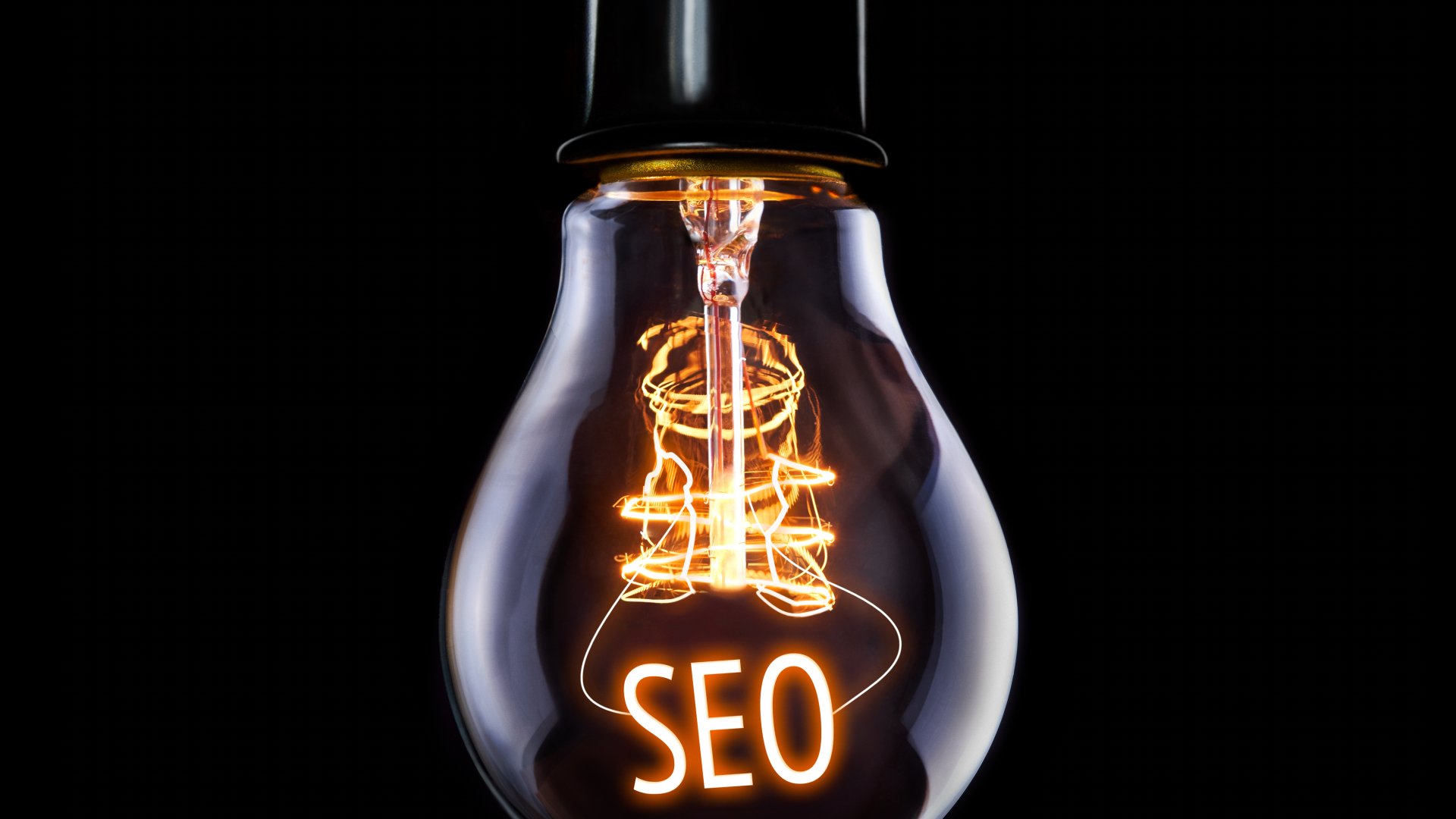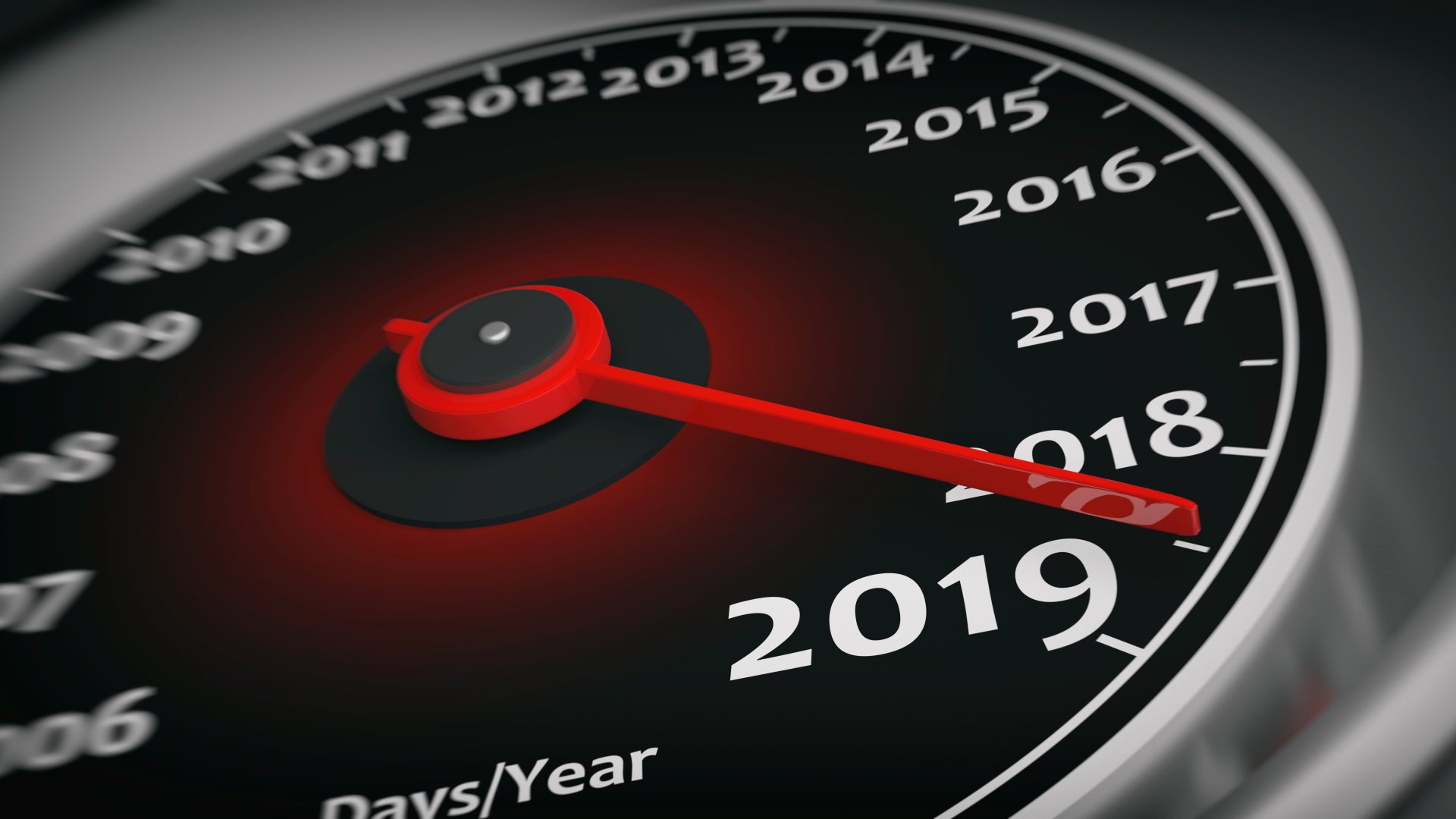Online marketing is a complex system Those who read my blog regularly, or have been to my conferences, talks, or university lectures know that I’ve been saying it since 2007 that online marketing is a complex system, where success can only be guarantee...
Why SEO is an essential part of any marketing communication strategy
In this article, we are going to use Google Analytics data to demonstrate why SEO is the most important tool in online marketing, and how much better it is than social media and paid Google advertisements.

Those not well-versed in search engine optimization may tell you that seo is dead – that it’s no longer a viable tool for marketing. Well, that may be the case for them, after all, people who say this are usually not able to stay up-to-date with google’s latest algorithm changes and the search trends they give rise to.
But seo doesn’t have to be dead to you. Not if you manage your marketing budget in a smart way, and allocate a bit more for search engine optimization.
Contrary to popular belief among marketers, SEO is not only a perfectly viable part of any modern online marketing strategy, but an absolutely essential one. Proper search engine optimization can give more online visibility to your brand, increase the amount of organic (free) traffic to your website, has a high ROI, makes your online presence more credible, and provides invaluable information about your customers. Let’s see how all of that is possible!
SEO: The go-to tool for online visibility organic branding
People may turn to google with their questions dozens of times per day. When someone searches for something on Google (let’s face it: Google has no real competition in the search game), then it goes without saying that you’d want to be among the first results that appear.
It also helps a lot if your content appears for keywords relevant to your brand. People don’t usually search by typing something, then click on a result and that’s it, they’re done. Most searches try multiple search terms, look at several results, modify their terms again, and so on.
If you can – and with SEO you actually can – rank your content for several such terms, then the name of your brand or business will be etched more and more deeply on the minds of searchers each time it appears on the results pages. Sooner or later, they’ll click on your links, and since they’ve seen them appear many times before for relevant queries, they’ll probably already have some trust towards your brand.
Which leads us to our next point…
What about that amazing ROI?
This is probably the most important reason why SEO is better than all other offline and online marketing tactics. Search engine optimization has a low cost, allowing for a very high ROI (return on investment) – this means that SEO can bring back much more money than what you invest in it. Of course, it’s only possible if you know how to do it efficiently.
SEO is classified as an inbound marketing tactic, which means that it allows you to target people who are specifically searching for products and services that you offer. This has many advantages over most types of traditional (and even digital) marketing methods. For example, with SEO, you don’t have to interrupt the browsing or TV-watching experience of your target audience with obtrusive ads.
You don’t have to convince them that they need the exact thing your brand offers, as they already begin their search with that mindset. Instead, you have to convince them that your products and services offer more value for them than that of your competitors’. As you probably have guessed by now, SEO it the perfect tool for this.
Let’s take the Google Analytics data of a hotel for example. Although everyone sees sales and conversions (in this case, bookings) as the primary metric, let’s not look at that just yet (we’ll get to it in a minute).
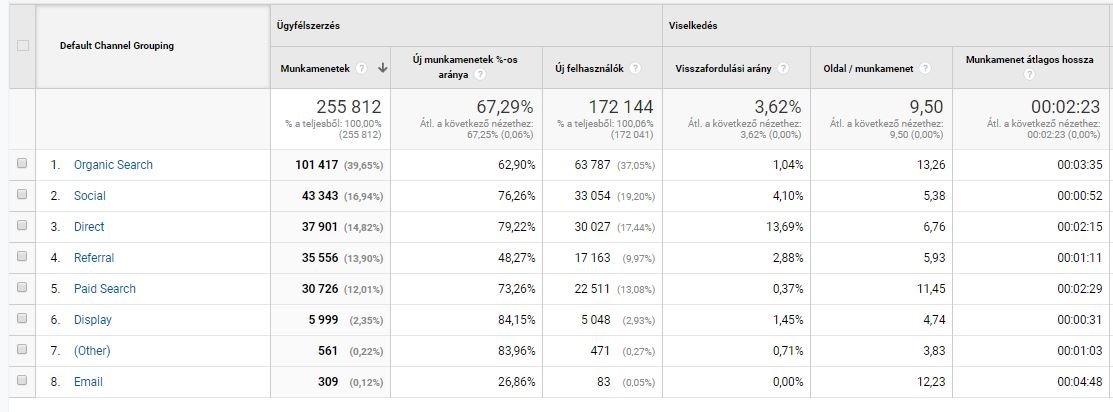
In this screenshot you can see the traffic data summary of the previous year. ORGANIC SEARCH represents traffic that comes from search engines via non-paid results. PAID SEARCH is the opposite – the people who found the site via paid ads. SOCIAL is easy to guess – this traffic comes from social media. Finally, DIRECT is the amount of sessions that start with someone typing the url of the hotel into their web browser.
This hotel has more than 50 thousand followers, is active on Instagram, which costs about 200 thousand forints, plus paid ads which is an extra 50 thousand forints per month. There’s also google ads adverts and, of course, search engine optimization, both of which also cost 150 thousand forints respectively.
All traffic sources – especially the latter two – have roughly the same monthly budget. Still, organic traffic from Google is almost 2.5 times higher than social media traffic, and almost 3.5 higher than paid traffic from ads.
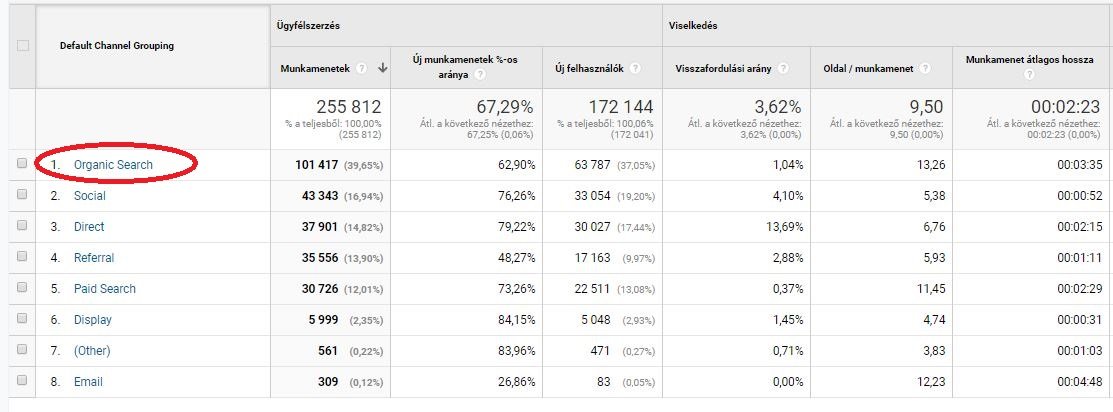
But let’s see how relevant that traffic is…
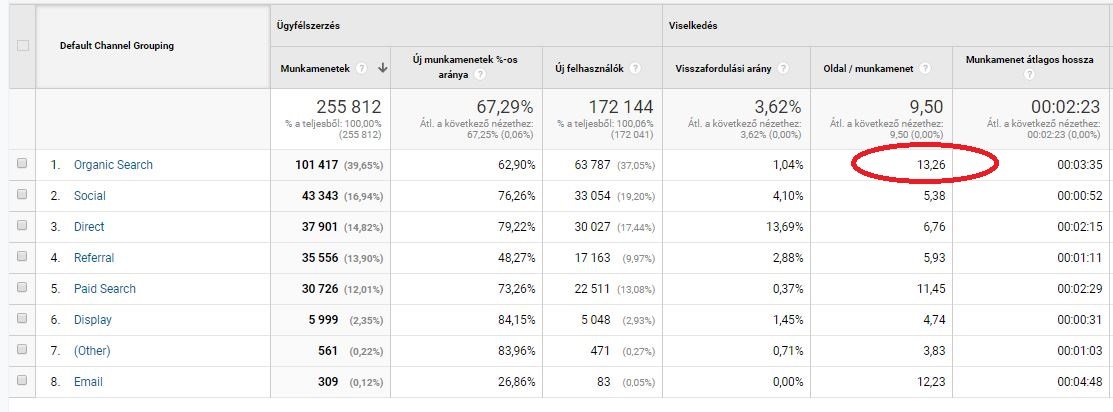
AS you can see, organic visitors from Google view 13.26 pages per session (visit) on average, which is much more than what social media offers, and it’s even a bit higher than paid search.
It’s the same case with the average session length by traffic source.
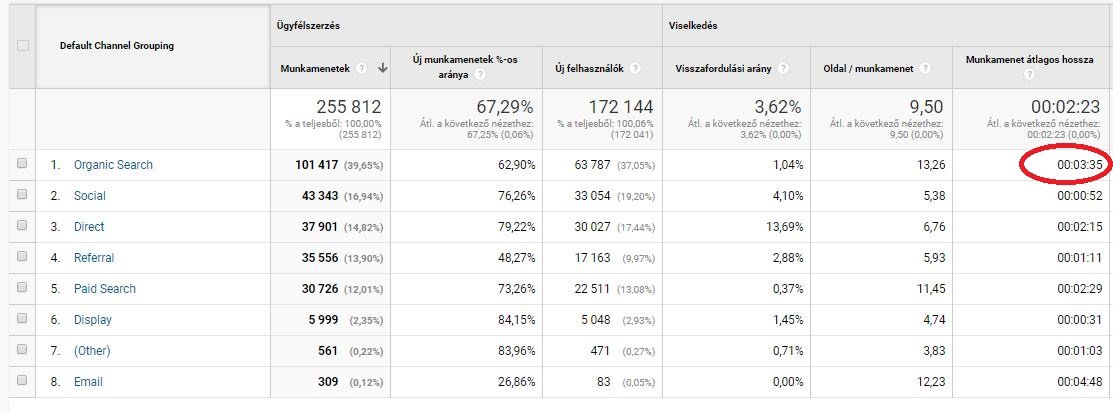
It’s obvious that traffic attracted by search engine optimization and content marketing is the most useful for hotels. But now let’s look at real returns on investment – conversions!

The numbers here are just as surprising: the ROI of search engine optimization (represented by the google / organic metric) is more than six times higher than that of paid ads (google / cpc), and about 45 times higher than what social media brings in. Unfortunately, this report doesn’t tell us the sources of direct traffic, but it’s probably a combination of SEO, offline ads, social media marketing, and so on.
Now, we’re obviously not saying that it’s not worth spending money and time on any marketing channels other than SEO. Online marketing is most effective when it’s based on a complex strategy, which involves multiple channels and tools, one of which happens to be search engine optimization. Conversions from social media and paid ads are just as valuable, they simply target a different audience than SEO. We always offer a complete strategy for our clients, the main pillars of which are content marketing and SEO. If you would like to have such a strategy, then you can ask for one here.
What else is SEO good for?
SEO gives more credibility for your business
Whenever a user sees your website among the search results, they take a mental note of which position they saw it appear in. While this happens subconsciously, it still impacts how that user perceives your brand.
The number one result on Google receives about 43-44% of all clicks, while the second position is left with a considerably lower 17%. As the positions go down, so does the average click-through-rate. The third place gets 13%, and the other 25% is split among the rest of the results.
That’s not surprising if you think about it. Over the years, people developed an unconditional trust towards Google – there’s an almost universally accepted notion that whatever is first in Google must be the best possible result for a query. So, the higher you can rank your website and its pages, the more trust people will have in your brand.
SEO drives qualified traffic to your website
Traffic in itself isn’t worth much (at least not when it comes to making profit). Again, it’s not the case that more traffic is bad, of course not. But there’s a huge difference between a visitor that finds your website by accident and one that is specifically trying to find what you offer, be it a product, or a service. So while traffic quality can vary, people driven to your website by SEO will almost always be more interested in your products and services than simple organic traffic.



